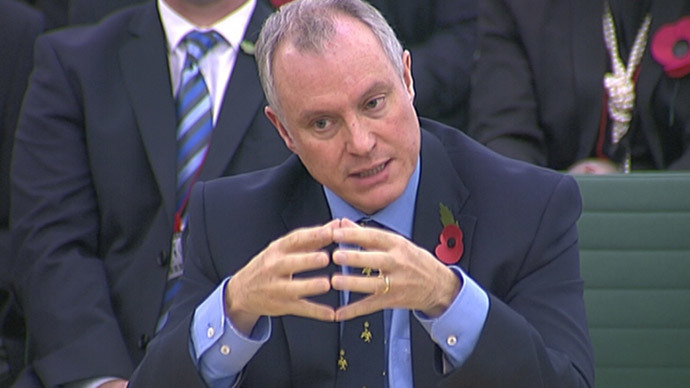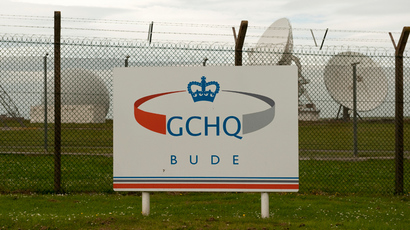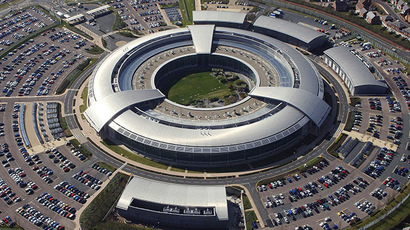‘Mission of liberty’: Outgoing GCHQ boss defends mass surveillance

The outgoing director of GCHQ has used his farewell speech to praise the UK surveillance agency’s practices. In the wake of Edward Snowden’s revelations, Sir Iain Lobban called the agency’s work a “mission of liberty, not erosion of it.”
Speaking to a select audience in the Cabinet War Rooms, the director made reference to the recent scrutiny GCHQ has come under following the Snowden leaks.
“Today, of all the communications out there globally – the emails, the texts, the images – only a small percentage are within reach of our sensors,” Lobban said.
He further claimed the policies of GCHQ were in the interest of the public, as he defended the need to monitor exchanges of information around the world.
“Unfortunately, there’s no badguy.com,” he quipped.
The director also said the percentage of information GCHQ stores is “miniscule,” claiming “only a small percentage is ever viewed or listened to.” He further praised the regulators for being “exceptionally good at understanding the need to keep our work secret.”
GCHQ’s secrecy was compromised in 2013 after Edward Snowden, a former National Security Agency (NSA) contractor, leaked information about three of their most invasive operations.
Snowden’s leaks, handed to the Guardian, revealed unprecedented levels of NSA and GCHQ surveillance of phone calls, text messages and videos.

Details of the Tempora operation, leaked in June 2013, revealed NSA and GCHQ had access to an extensive network of fiber-optic cables, streaming internet communications and telephone calls.
This was followed by revelations of Optic Nerve, an operation which accessed more than 1.8 million video calls between users on Yahoo chat, and operation Dishfire, which collected metadata from over 200 million texts per day from users around the world.
READ MORE:GCHQ more dangerous to privacy than NSA – Snowden
The NSA would use programs to generate generic texts such as missed call alerts in order to extract metadata such as location, contact networks and credit card details. This metadata was then accessed by GCHQ in the UK.
The leaks became the center of a media storm and a mass public debate, questioning both the necessity and legality of GCHQ’s actions.
Following the leaks, it was reported that GCHQ used their links with the NSA to jump through legal loopholes which allowed them access to information which would otherwise have been protected under UK law.
READ MORE:GCHQ cleared of illegal activity, but questions on snooping approvals ‘overuse’ linger
In June 2013, then-Foreign Secretary William Hague spoke out in defense of the practice, claiming GCHQ operated within legal boundaries and that their practice had saved countless lives.
In his speech on Tuesday, Lobban directly addressed GCHQ’s relationship with the press.
“We may get frustrated when our efforts are undone, our enemies advantaged, and our integrity questioned, but we’re not frustrated by the free press itself,” he said. “We do what we do precisely to safeguard the kind of society that has one.”
Lobban will hand over command of GCHQ on October 24 to Richard Hannigan, who is being transferred from the Foreign Office.














